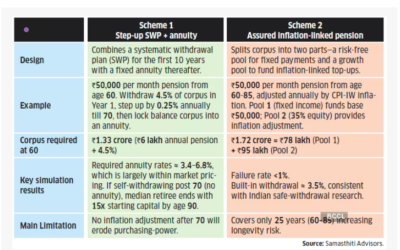By Ravi Saraogi & Deepti George
(This article was published in Live Mint and can be accessed from the link below)
On 6th August, the markets regulator released a consultation paper proposing overhauling of regulatory framework for registered investment advisers (RIAs) and research analysts (RA). The proposals’ tone marks a sharp departure from the changes introduced in the RIA regulations of 2020. While the 2020 changes significantly tightened the RIA rules—some would argue were stifling—the recent proposals seek to relax rules, ushering in a new era for the Indian investment advisory sector.
India has about 995 RIAs, compared to about 150,000 mutual fund distributors and more than 2 million insurance agents. The new proposals can significantly increase the number of RIAs by relaxing the requirement of having a Master’s degree and prior work experience and by lowering net-worth requirements.
The proposed changes can also lead to an increase in the talent pool for the advisory industry by making it easier to register as a person associated with investment advice (PAIA). PAIAs assist RIAs in their advisory work and could later become RIAs.
The proposals have also floated the idea of a part-time RIA, which could widen the net of regulated investment advisory. This would not only encourage more people to consider the RIA regulations—even if on a part-time basis—but also bring isolated pockets of advisory activities within the RIA regulation’s gambit.
For example, a chartered accountant assisting a client with tax planning usually suggests investment in tax-saving products like the Equity Linked Savings Scheme (ELSS). However, the suggestion may also specify ELSS mutual funds suitable for the client. This is clearly an investment advisory activity. The consultation paper uses the words “required to register” for any individual who engages in investment advisory activity—even if partly.
Collateral damage: Another hotly debated topic in the proposals is the rules that would make it difficult for RIAs to dispense advice on products that are not regulated by the formal financial sector regulators. The proposed changes specify that RIAs cannot advise on products other than those mentioned above, and corporate RIAs would require separate divisions with separate branding to house non-financial-sector-regulated products.
The regulatory intent is clear. Since the RIA license is granted by Sebi, a client of an RIA only has recourse to grievance redressal with Sebi on advice pertaining to Sebi-regulated products. But, this step’s collateral damage is the process of financial planning.
Financial planning cuts across different dimensions, and planning engagement spans different assets—physical and financial, domestic, international, owned and to be inherited. By introducing barriers to the piece of a pie RIAs can pick up, holistic financial planning will become a casualty. The RIA regulations of 2013 met a very important need. Pooled investment products were regulated under MF or the alternative investment fund regulations. Bespoke portfolio management was regulated under portfolio management services regulations. However, there were no regulations for financial planning and investment advisory in a fiduciary capacity. RIA regulation filled this gap. By segregating advice, proposals could once again make financial planning an orphan.
For policymakers interested in promoting welfare through financial well-being, having households get the best they can from their interactions with the formal financial sector is an aspiration that should not be limited to simply “do no harm”. Comprehensive financial planning requires such planning to be multi-dimensional. A fully qualified advisor must be given a chance to undertake this activity and not be limited to offering piece-meal, incomplete or interrupted advice.
Considering that financial planning can touch the jurisdictions of multiple regulators, perhaps the Financial Stability and Development Council, or FSDC has a role play—for enforcing the various contours of what is “financial advice” and for drawing up a set of protections to be upheld for the users of such advice. This would require close cooperation between the various financial sector authorities, which could potentially happen under the FSDC’s aegis.
The proposed changes can potentially propel the dispensation of clean and fiduciary advice in India. A large proportion of Indian households is expected to create more wealth than seen in our history. If the financial system has to deliver better management of this wealth, the time to create this opportunity is now.







0 Comments